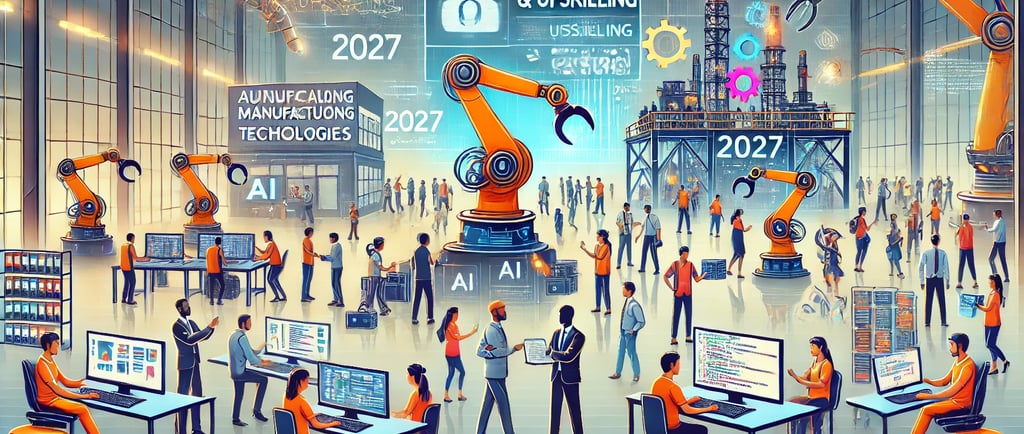The Impact of AI and Automation on Job Creation in India
🌟 AI and Automation: Transforming India's Workforce by 2027 🌟 According to a groundbreaking report by ServiceNow and Pearson, AI and automation are set to revolutionize the Indian tech landscape. By 2027, these technologies will drive the creation of 4.7 million new tech jobs and require the reskilling and upskilling of 16.2 million workers across industries.
TECHNOLOGY


Introduction to AI and Automation in the Workforce
As we navigate through the era of technological advancements, the significance of artificial intelligence (AI) and automation cannot be overstated. A recent report by ServiceNow and Pearson highlights that by the year 2027, these technologies are expected to create approximately 4.7 million new tech jobs in India. This exciting development brings forth a pressing need for the reskilling and upskilling of a notable 16.2 million workers.
Transformative Changes in the Manufacturing Sector
The manufacturing sector is poised to undergo the most significant transformation due to the integration of AI and automation. These technologies streamline processes, enhance productivity, and optimize resource utilization. With the evolving landscape of manufacturing, it is imperative that workers are equipped with the necessary skills to thrive in this new environment. Therefore, companies must invest in training programs aimed at fostering technological proficiency among their employees to ensure smooth transitions and maintain competitive advantages.
The Need for Reskilling and Upskilling
The transition towards a more tech-oriented workforce is not merely about replacing jobs with machines; rather, it is about empowering workers with the skills required to operate within these advanced systems. The report indicates a clear need for reskilling and upskilling efforts that will enable the workforce to adapt to the demands of the evolving job market. Educational institutions, businesses, and policymakers must collaborate to create comprehensive training programs that focus on developing expertise in areas such as data analysis, machine learning, and software development.
In conclusion, the future of work in India is intricately linked to the development of AI and automation technologies. Embracing these changes will not only create millions of new jobs but will also necessitate a cultural shift towards continuous learning and adaptability. By 2027, with the right strategies in place, the workforce can transform challenges into opportunities, leading to a more technologically advanced and productive society.
